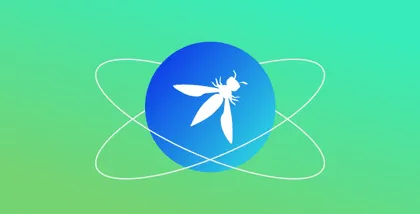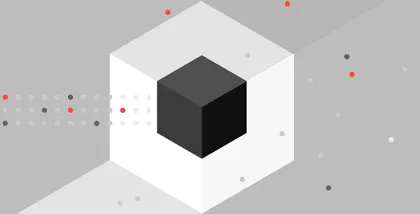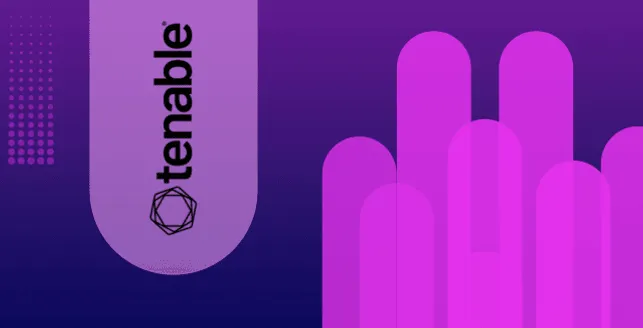
When it comes to vulnerability management and application security, Tenable is one of the first names that comes to mind. Over the years, it has built a reputation as one of the leaders in the cybersecurity space, offering a range of products from web application scanning to enterprise-grade vulnerability management and unified platforms for cloud and hybrid environments.
But given the vast changes in recent times and Tenable being a legacy platform, it begs the question: how much does Tenable cost? And is it worth the investment in 2025?
In this guide, we’ll break down Tenable pricing across its major offerings, highlight what drives those costs, and compare alternatives that may provide stronger value for different use cases.
How much does Tenable cost?
Like most enterprise cybersecurity solutions, Tenable’s pricing isn’t always fully transparent. Costs typically scale based on the number of assets, deployment model, and bundled features.
Tenable web app scanning pricing starts at $7,434 per year for 5 FQDNs, with pricing scaling with respect to FQDNs.
Tenable.io (cloud-based vulnerability management) starts from $5,782 per year, for 100 assets.
Tenable.sc pricing starts around $4,076 per year, scaling by asset volume and deployment size.
Tenable Cloud Security pricing is not available publicly and can only be obtained by requesting a quote, with the pricing being based on the number of billable resources running in your cloud.
Tenable One pricing starts from $50,000 per year, with costs determined by the number of assets and features included.
| Product | Estimated pricing (Annual) |
|---|---|
| Tenable web app scanning | $7,434 for 5 FQDNs |
| Tenable.io (vulnerability management) | $5,782 for 100 assets |
| Tenable.sc | $4,076 |
| Tenable Cloud Security | Custom pricing |
| Tenable One | $50,000+ |
Tenable web app scanning pricing
Tenable Web App Scanning (WAS) is designed to identify vulnerabilities in web applications and APIs. Pricing starts at $7,434 per year for 5 FQDNs, with pricing scaling with respect to FQDNs. The higher the volume, the higher the annual cost.
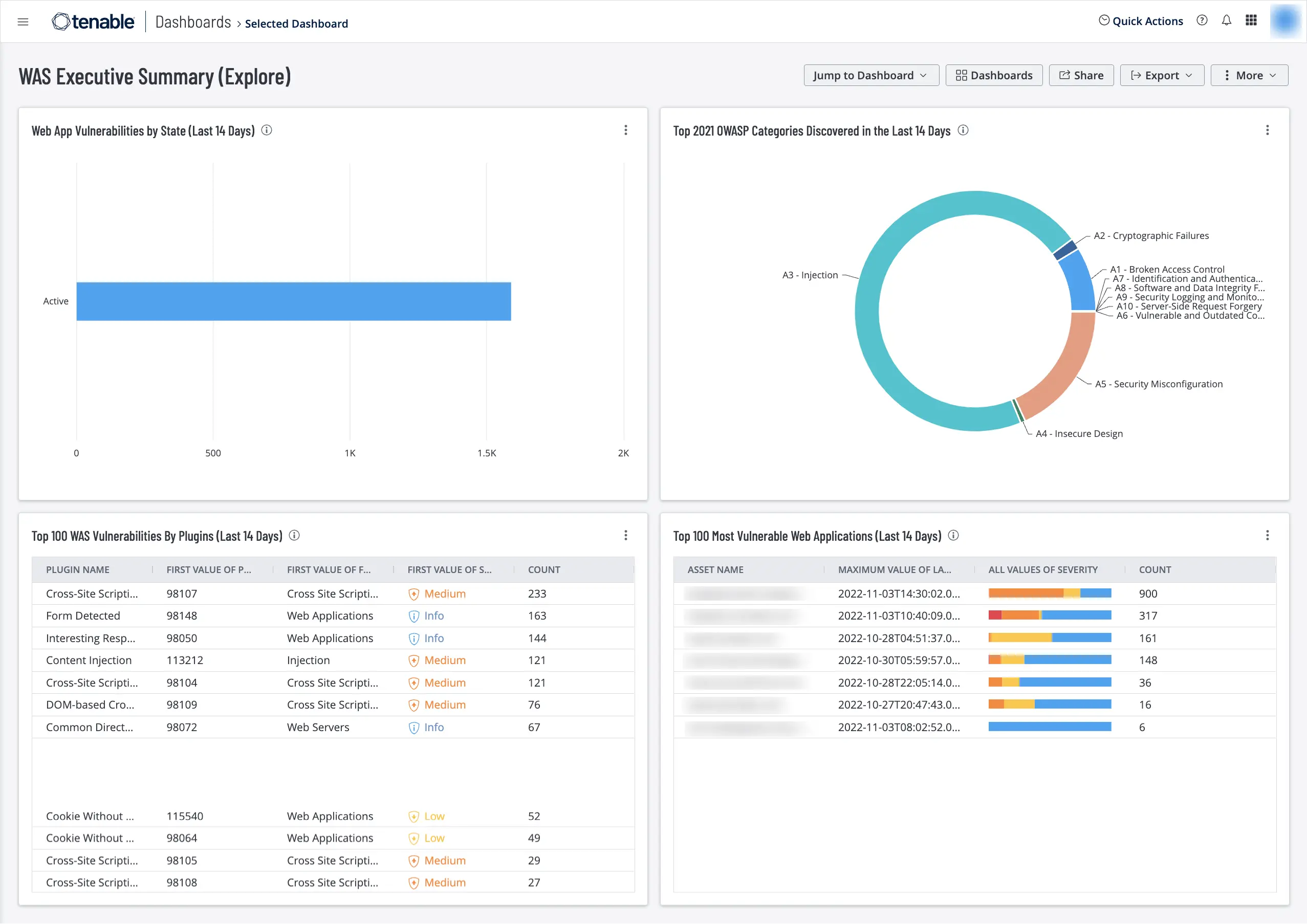
Main features of Tenable WAS:
Automated Dynamic Application Security Testing (DAST)
API scanning
DevSecOps integration
Vulnerability intelligence
Advanced reporting
Best Tenable web app scanning alternative: Beagle Security
Beagle Security offers a more cost-effective and AI-driven approach to web application, API, and GraphQL security testing. Unlike Tenable WAS, it is designed to handle complex authentication flows and deliver developer-friendly remediation insights.
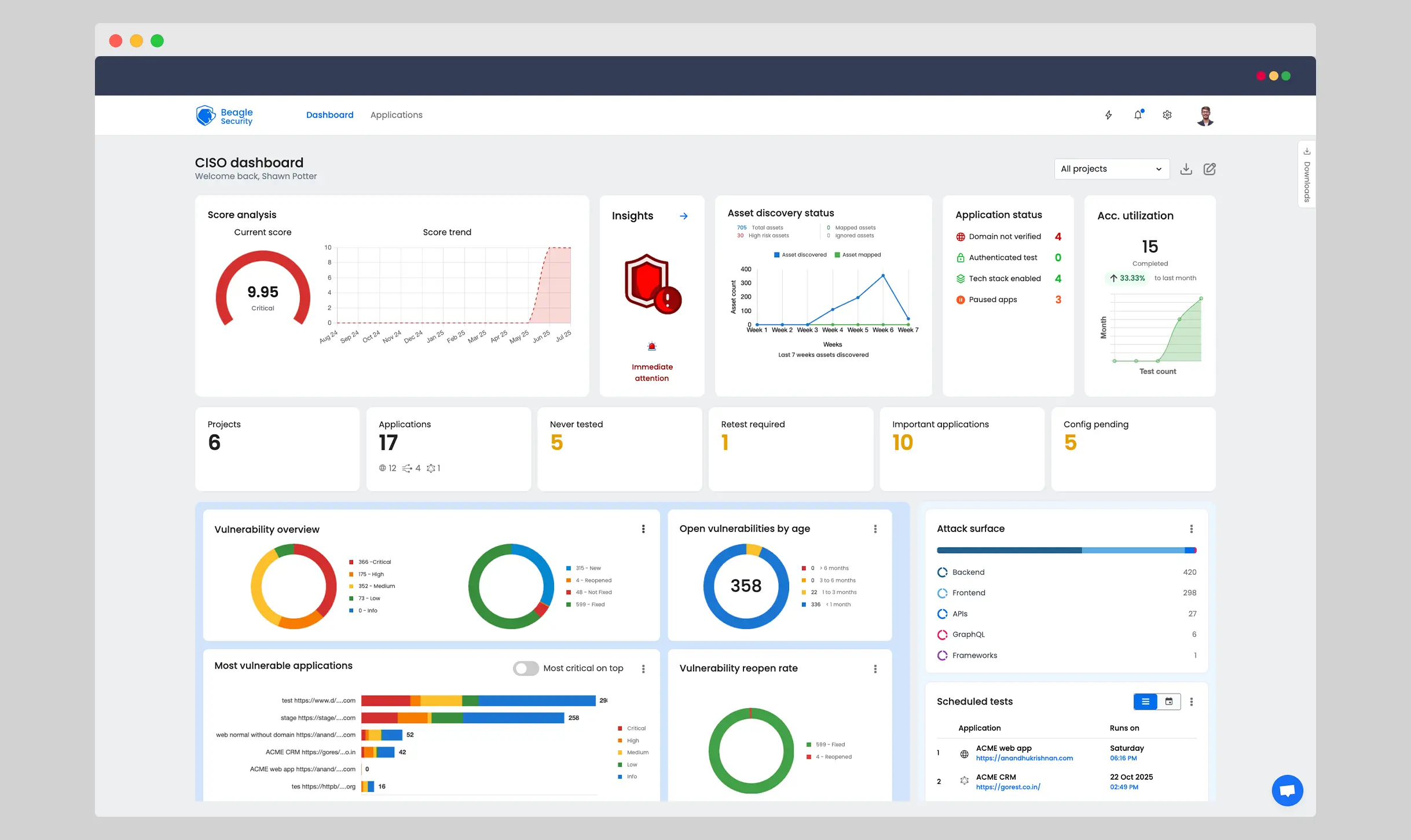
G2 review: 4.7/5 based on 87 reviews
Pricing: Starts from $1,188/year
Main features of Beagle Security:
AI-driven automated penetration testing
GraphQL and API security coverage
Smart vulnerability prioritization with reduced false positives
Compliance-ready reports (HIPAA, PCI DSS, OWASP)
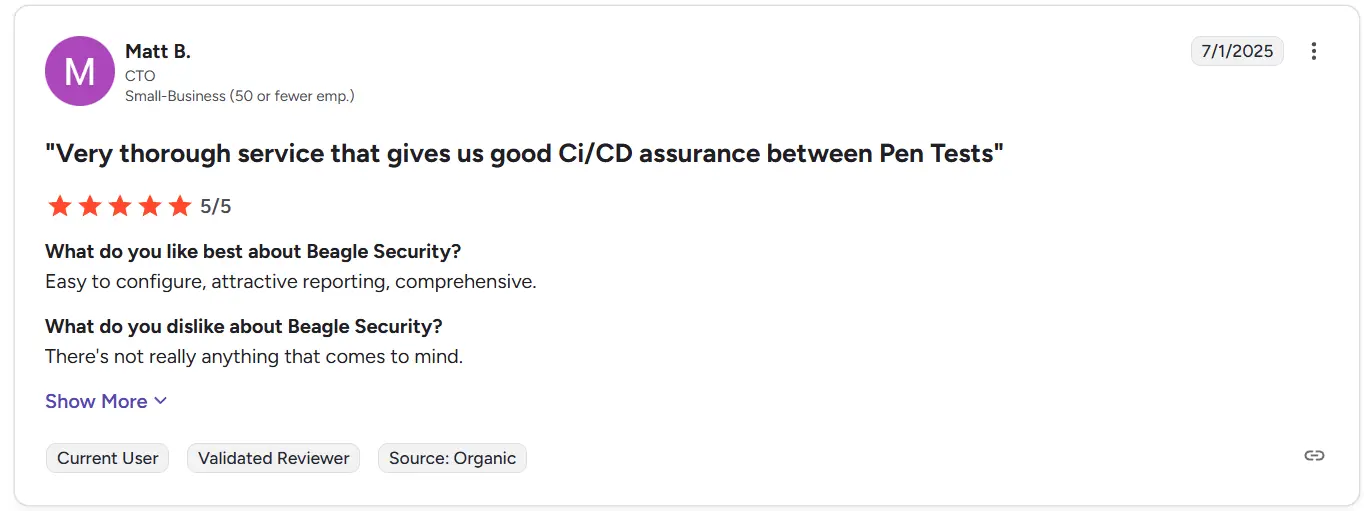
Tenable.io vulnerability management pricing
Tenable.io is the company’s cloud-based vulnerability management product. Pricing starts at around $7,434 annually for 5 FQDNs, with costs increasing as you scale.
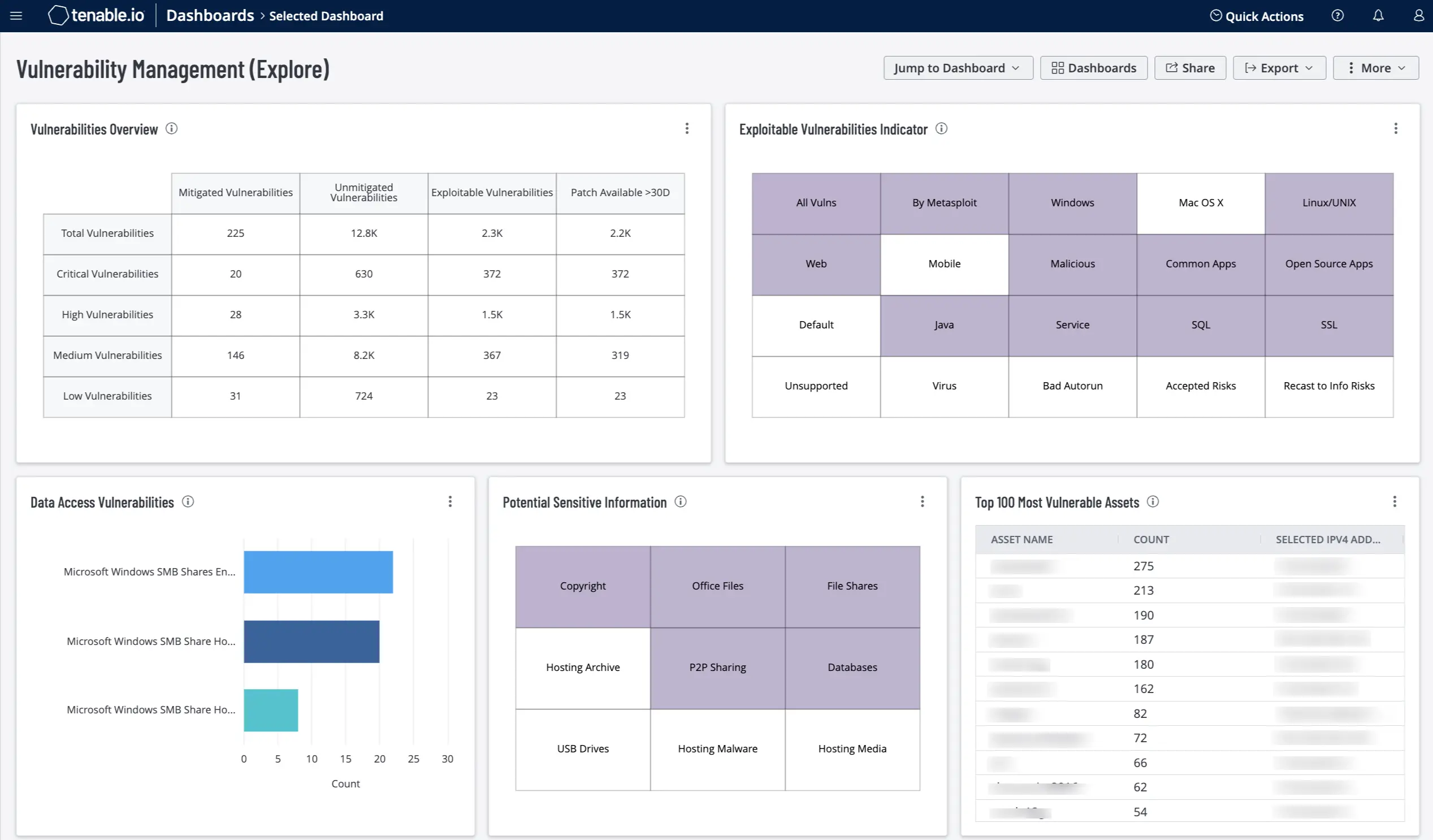
Main features of Tenable.io vulnerability management:
Cloud-based vulnerability detection
Asset discovery and inventory
Integration with DevOps tools
Reporting aligned with compliance frameworks
Best Tenable.io alternative: SecOps Solution
SecOps Solution provides broader visibility across hybrid IT and integrates natively with incident response workflows. Compared to Tenable.io, it often offers better ROI for teams needing continuous monitoring at scale.
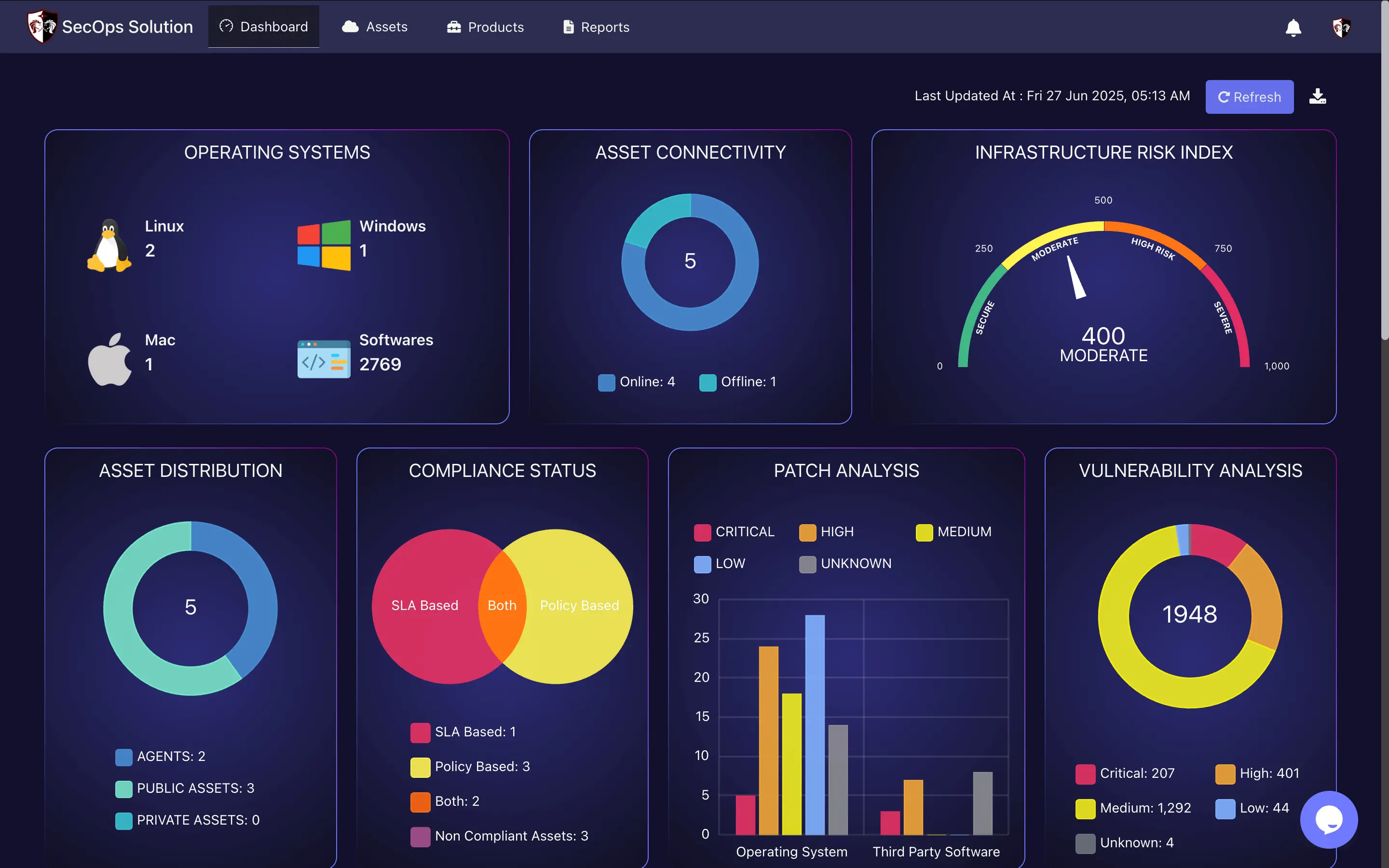
G2 review: 4.8/5 based on 36 reviews
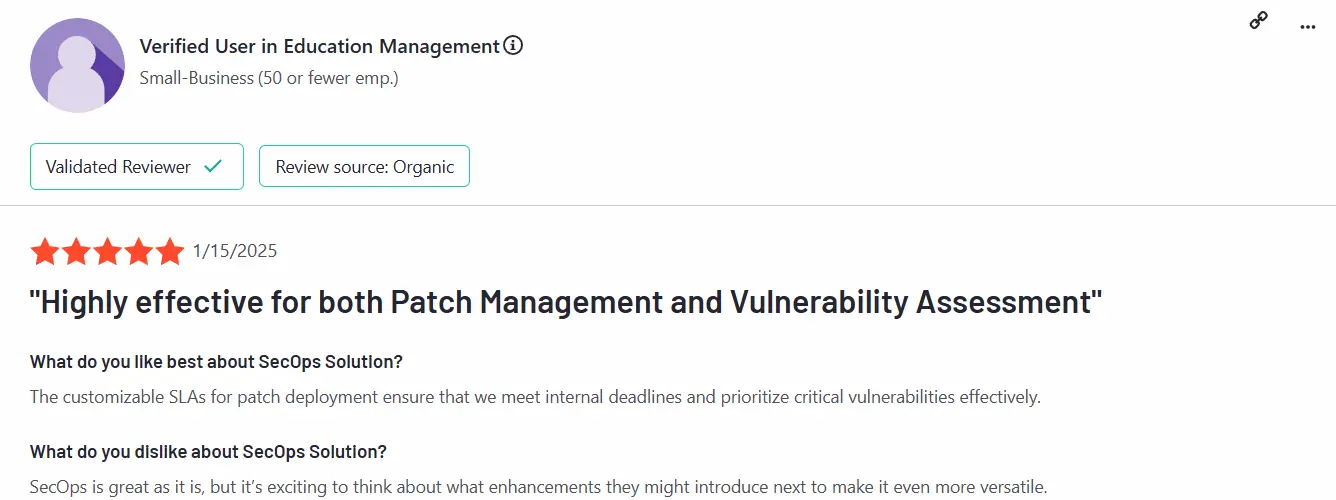
Pricing: Flexible, depending on asset volume and integrations
Main features of SecOps Solution:
Continuous asset discovery and vulnerability detection
Built-in remediation tracking
Cloud and on-premise coverage
Executive dashboards and SLA tracking
Tenable Cloud Security pricing
Tenable Cloud Security is positioned for organizations securing cloud-native environments. Pricing for Tenable Cloud Security is only available on request. Pricing generally scales up as the number of billable resources running in your cloud increases.
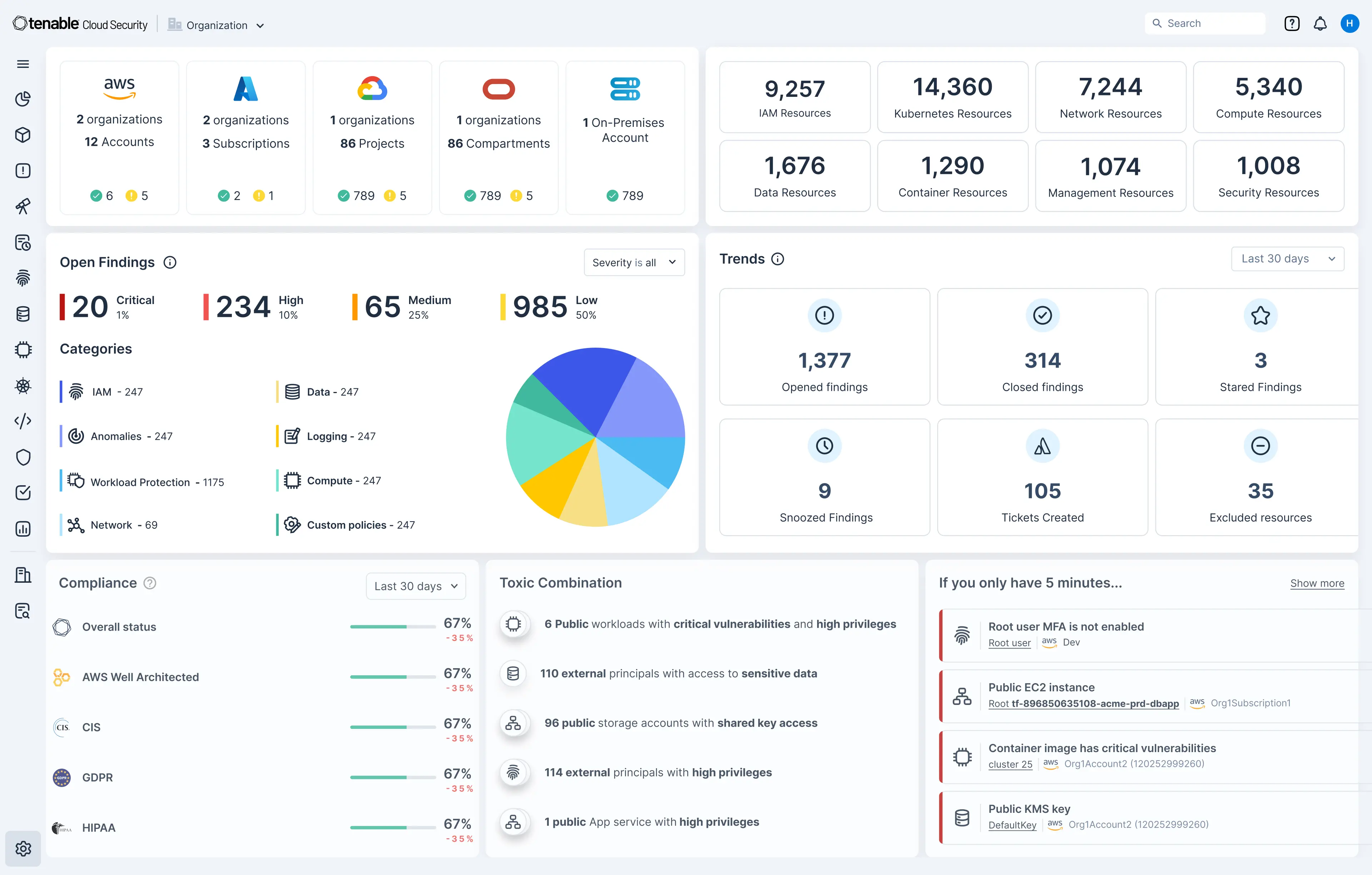
Main features of Tenable’s Cloud Security offering:
Visibility across AWS, Azure, and Google Cloud
Cloud misconfiguration detection
Compliance monitoring for cloud security standards
API-level integrations with CI/CD pipelines
Best Tenable Cloud Security alternative: Orca Security
Orca Security provides agentless cloud security, allowing faster time-to-value and easier deployment compared to Tenable Cloud Security. It delivers broader workload coverage with reduced complexity.
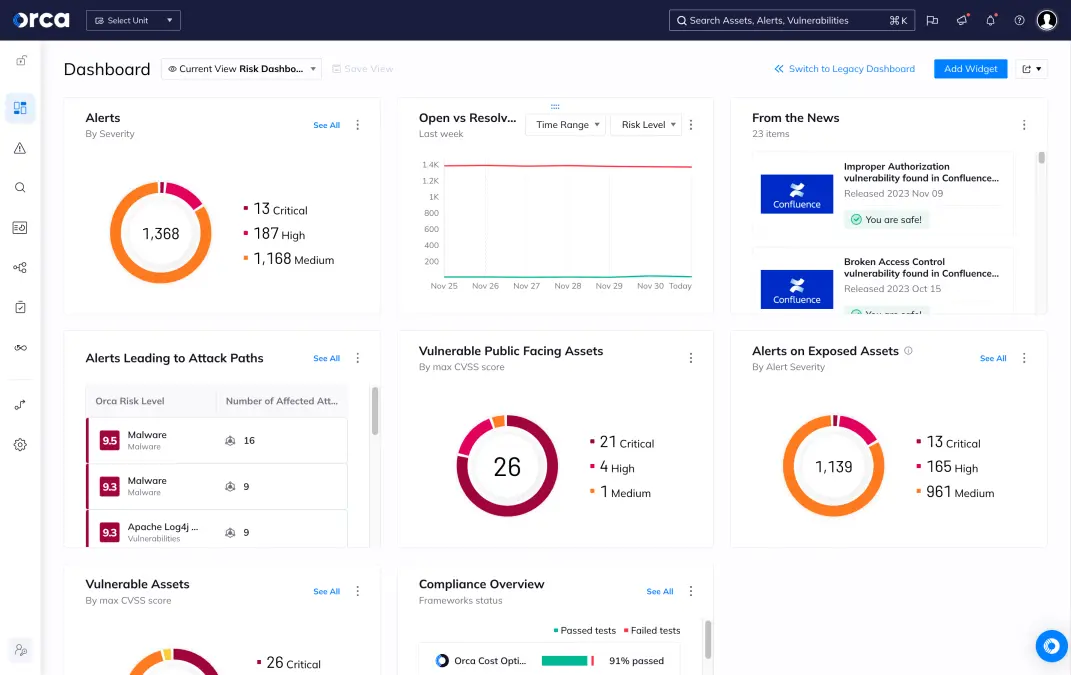
G2 review: 4.6/5 from 221 reviews
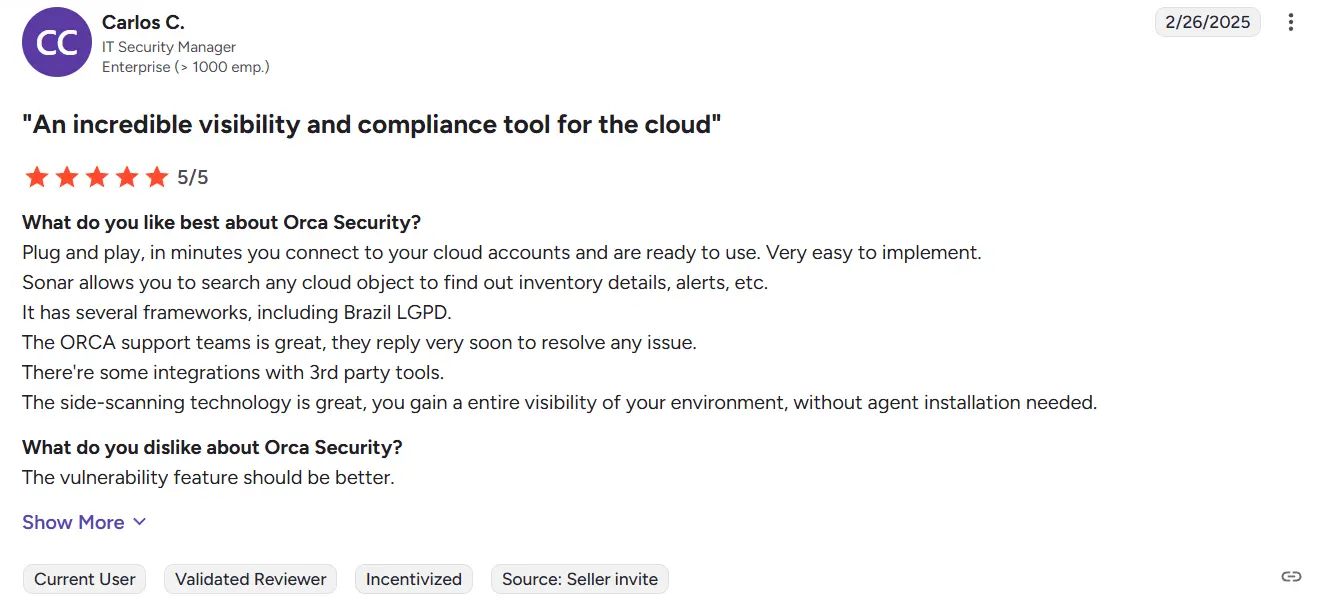
Pricing: Scales based on cloud accounts and workloads
Main features of Orca Security:
Agentless, full-stack cloud security coverage
Real-time risk prioritization
Cloud compliance reporting
Integration into DevSecOps pipelines
Tenable One pricing
Tenable One is the unified exposure management platform, bundling almost all of Tenable’s various offerings. Pricing typically starts at slightly above $50,000 annually, scaling with the number of assets and features licensed.
Main features of Tenable One:
Unified risk visibility across IT, cloud, and applications
Exposure analytics for executives
Asset inventory and contextual risk scoring
Integrations with SIEM, SOAR, and ITSM tools
Best Tenable One Alternative: Qualys
Qualys offers a modular approach to exposure and vulnerability management, allowing organizations to select features on-demand without committing to a bundled pricing model. This often provides better cost efficiency.
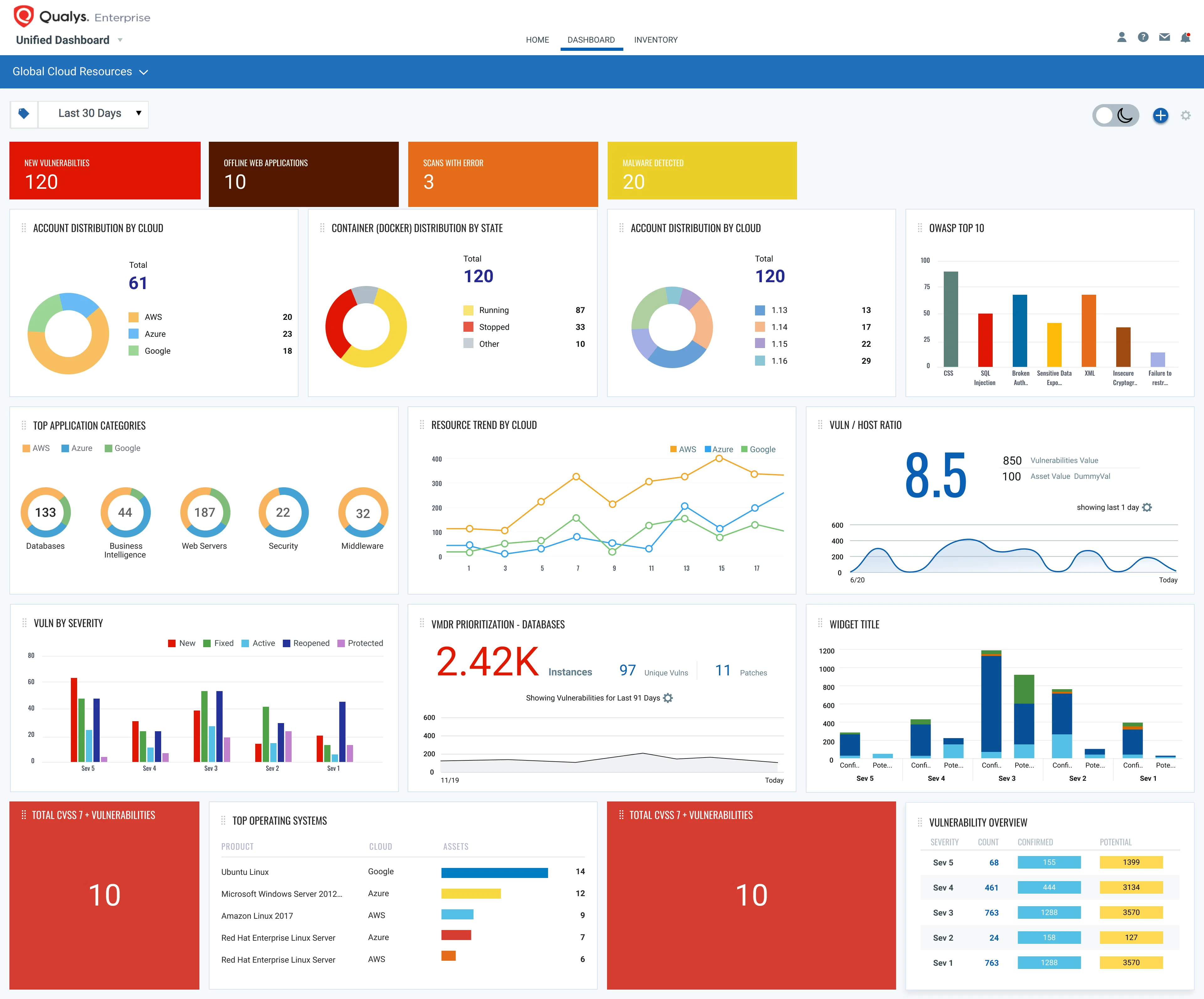
G2 review: 4.3/5 from 233 reviews
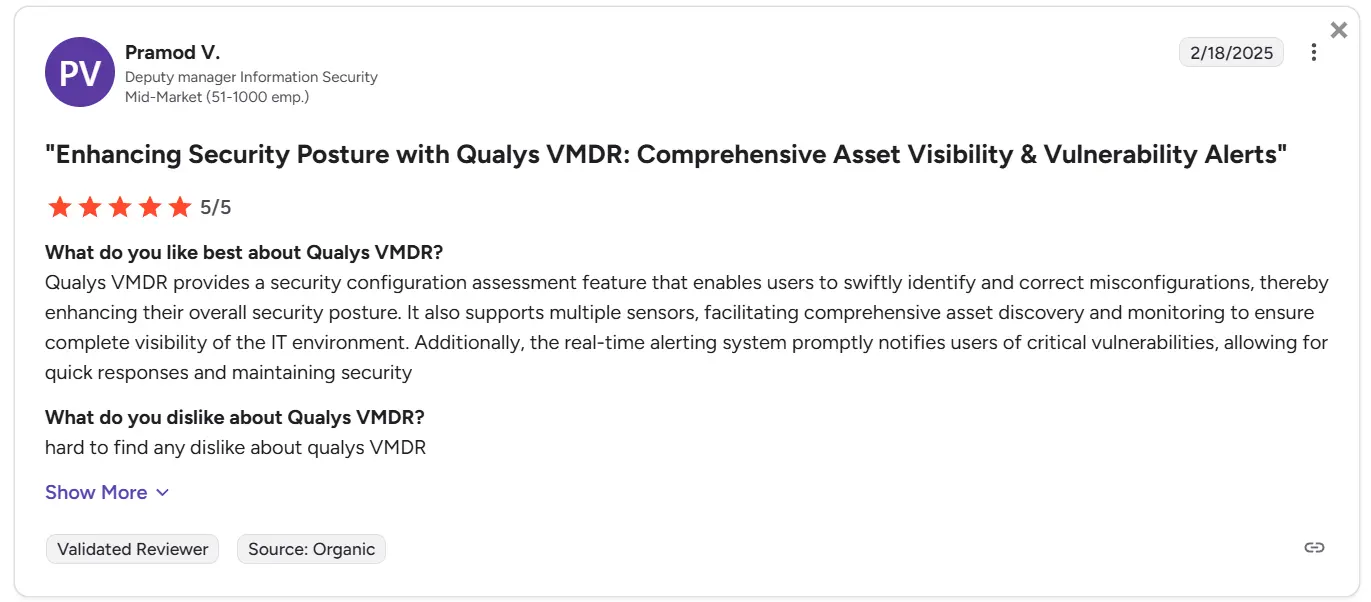
Pricing: Flexible pricing depending on selection of Cloud Platform Apps, the number of network addresses (IPs), web applications, and user licenses.
Main features of Qualys:
Modular vulnerability and compliance offerings
Cloud-native platform
Global asset discovery and visibility
Detailed executive and compliance reporting
Factors influencing Tenable pricing
When evaluating Tenable pricing, several factors will determine your actual costs:
Number of assets (Licensing volume): Most Tenable products scale by asset count or applications tested.
Product type & features: Bundled platforms like Tenable One cost significantly more than single products.
Licensing model: Cloud (subscription-based) vs. on-prem (perpetual license + maintenance).
Support and training: Premium support packages increase costs.
Contract duration: Multi-year agreements often lower annual costs.
Deployment type: On-premise deployments typically incur higher infrastructure and maintenance costs.
Bottom line
Tenable remains a leader in vulnerability management and application security in 2025. Its pricing, however, can quickly escalate as organizations scale, particularly for asset-heavy enterprises adopting Tenable One.
For smaller and mid-market companies, or those focused primarily on web application and API security, alternatives like Beagle Security, SecOps Solution, Orca Security, and Qualys often provide more agile deployment, better pricing flexibility, and developer-centric features.
The decision ultimately comes down to whether Tenable’s broad coverage and brand recognition justify the cost. Or whether a best-of-breed alternative is a smarter investment for your organization’s unique risk profile.
![OpenVAS vs Nessus: Which is the best choice for you? [2025] OpenVAS vs Nessus: Which is the best choice for you? [2025]](/blog/images/openvas-vs-nessus-which-is-the-best-choice-for-you-2025-cover.webp)


![Top enterprise application security tools [2026] Top enterprise application security tools [2026]](/blog/images/blog-banner-four-cover.webp)
![Top vendor application security testing tools [2026] Top vendor application security testing tools [2026]](/blog/images/blog-banner-six-cover.webp)
![Best API security tool for developers [2026] Best API security tool for developers [2026]](/blog/images/blog-banner-five-cover.webp)

![Top Bright Security alternatives [2026] Top Bright Security alternatives [2026]](/blog/images/blog-banner-one-cover.webp)
